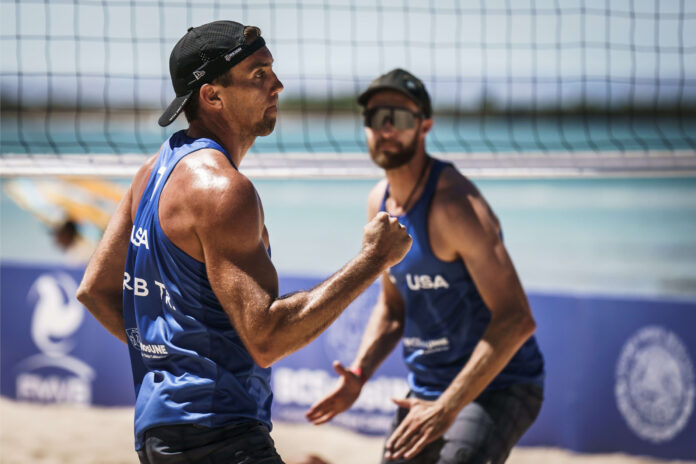We hope you didn’t set your alarms last night.
Hope you didn’t plan on staying up for Trevor Crabb and Theo Brunner’s second round match of pool at the Haikou Challenge against Switzerland’s Adrian Heidrich and Leo Dillier. Or Chase Budinger and Miles Evans’ second rounder against Switzerland’s Marco Krattiger and Florian Breer an hour later. Or Poland vs. Italy at the same time.
It’s more than possible you’re wondering what has happened in Haikou.
Why all the forfeits? Dehydration? Food poisoning? A strange rash of injuries, all to teams who won their first round of pool… all coming in the second round?
It’d be a curious coincidence.
It is not.
Forfeits in the second round of pool play, from teams who have won their first round — this happens exclusively on the men’s side — in Challenge events have been somewhat common for much of the year. As the season has progressed, however, they have become rampant, for a multitude of reasons.
The most important is a perceived lack of incentive in the second round.
In the modified pool play format in which Challenges are played, if a team wins its first round match, their second round does not impact where they will begin the ensuing playoff rounds: both the winner and loser of that match will be seeded into the ninth-place rounds of the playoffs. In theory, should you win your second round and, by extension, win pool, your seeding will be improved. Rather than play a team who finished second in pool, you’ll play a lower-seeded second-place team or a third place team, potentially even one coming out of a lucky loser match earlier that day.
To this, many men’s teams are simply beginning to shrug.
Two weeks ago, in Goa, India, Tri Bourne and Chaim Schalk won their first round of pool and forfeited their second. Both had been battling stomach ailments picked up in Mexico, and while they were obviously healthy enough to win their first round, the incentive of winning the second was not greater than the benefit they figured they could get from forfeiting and resting instead. Goa, according to half a dozen players who competed, was also some of the hottest conditions in which many of them have played.
After a brief cost-benefit analysis, winning in the second round was not worth the toll. That cost-benefit analysis proved spot on: Bourne and Schalk drew an Austrian qualifier team; Portugal, the beneficiaries of the forfeit, drew fourth-seeded Australians, Zach…
Click Here to Read the Full Original Article at Volleyballmag.com…

